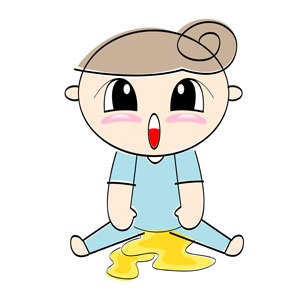
Dr Chung Kwong Yeung, chairman of paediatric surgery and paediatric urology at the Chinese University of Hong Kong, and colleagues tracked changes in cognitive function in 95 bedwetting children. (Cognitive function refers abilities such as intelligence, short-term memory and attention focus.)
The researchers also tested 46 children of the same age without the condition, which is also referred to as nocturnal enuresis. All of the children were evaluated over a 2-year period using several widely accepted cognitive tests.
"Prior research had shown that bedwetting children have inferior sleep quality, including sleep fragmentation and sleep deprivation, but paradoxically have more difficulty in completely awakening," Yeung, who is also ICCS President, pointed out. "Since sleep deprivation may have a negative impact on daytime cognitive functioning, it is important to examine whether there is an underlying connection between nocturnal enuresis and cognitive performance."
No studies have systematically compared cognition in bed-wetting and non-bed-wetting children or assessed cognitive changes after treatment for bedwetting, he added.
Medication promising
Patients in the enuretic group had an average of five bedwetting episodes per week. These children also had poorer scores than the comparison group on standardised tests of intelligence, focused attention, and short-term memory. The chronic bedwetters also had worse retention ability and long-term memory and a lower learning speed and reaction.
However, 6 months of treatment with desmopressin, a drug that increases urine concentration and decreases urine production, plus bladder re-training significantly improved all measures of cognitive function. Sleep-awakening ability and brainstem function, which has also been shown to be impaired in children with primary nocturnal enuresis, were also restored to normal after treatment.
"The findings are important because treatment of bedwetting should help patients achieve more than getting over the stigma of being wet," Dr Stuart Bauer, professor of urology at Harvard Medical School in Boston, told Reuters Health. "We now know that treatment can improve cognition and can therefore be expected to improve their school performance, self-image, and their interactions with peers and family members." – (Jill Stein/Reuters Health)
December 2007




 Publications
Publications
 Partners
Partners














